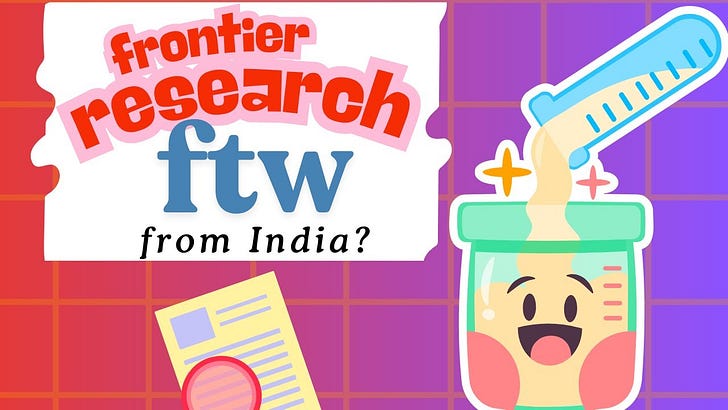Generative AI Can Harm Learning 🤖❌📖
Featuring Hamsa Bastani and others
We have some exciting news to share with you!
🎉 A team of brilliant researchers has just published a thought-provoking paper that explores the impact of generative AI on human learning. 📚
The paper, titled "Generative AI Can Harm Learning" 🤖❌📖, is a must-read for anyone interested in the future of education and the role of AI in shaping it. The authors, Hamsa Bastani, Osbert Bastani, Alp Sungu, and others, conducted a large-scale randomized controlled trial involving nearly 1,000 high school students across three grades. 🏫
Key Findings 🔍
Access to GPT-4 significantly improved performance on assisted practice problems (48% improvement for GPT Base, 127% for GPT Tutor) 📈
However, when access was subsequently taken away for an unassisted exam, students who had used GPT Base actually performed 17% worse than the control group who never had access 📉
The negative learning effects were largely mitigated by the safeguards included in GPT Tutor 🛡️
The authors suggest that students attempt to use GPT-4 as a "crutch" during practice sessions. When successful, this leads them to perform worse on their own afterwards. 😞
They conclude that to maintain long-term productivity, we must be cautious when deploying generative AI in educational settings to ensure humans continue to learn critical skills. 🧠
Implications 🤔
This research has major implications for how we approach integrating powerful AI technologies like GPT-4 into education. While they can boost short-term performance, we need to be mindful of potential negative impacts on actual learning and skill acquisition. 🎓
The full paper is available at: https://papers.ssrn.com/sol3/papers.cfm?abstract_id=4895486&download=yes&__cf_chl_rt_tk=6VmdFkPeiuhWXCqOPfgZiUY17TjrSVzT2BPMqDA_BlQ-1721236909-0.0.1.1-5098 📄
We'd love to hear your thoughts on this groundbreaking research! How do you think we can harness the power of generative AI in education while mitigating potential harms to learning? Let us know in the comments below! 💬
Disclaimer: This newsletter features research conducted by Hamsa Bastani, Osbert Bastani, Alp Sungu, and others. The views expressed in the paper are those of the authors and do not necessarily reflect the official policy or position of our organization. We encourage critical engagement with all ideas presented. 📜
More ISAIL Updates
The Innovation Gap: Rhetoric vs. Reality in India's AI Landscape
Disclaimer: This post is inspired by and adapted from a thread by @jsensarma on X (Twitter). The original thread can be found here. In India's rapidly evolving tech landscape, there's been much discussion about becoming a world leader in artificial intelligence (AI). However, bold statements about "thinking big" often overlook the realities of innovatio…
Tracing the Path to Fusion Ignition: A Two-Decade Journey of Collaborative Research
Disclaimer: This newsletter post is based on information presented in a YouTube video by Pivot by Astha Puri. The content and views expressed are attributed to the original source and do not necessarily reflect the opinions of this newsletter or its authors.
[New Report] Reimaging and Restructuring MeitY for India, IPLR-IG-007
We are thrilled to announce the release of our latest infographic report, "Reimaging and Restructuring MeitY for India", in collaboration with VLA.Digital! 🎉 As India stands at the cusp of a digital revolution, it is imperative that our technology governance structures evolve to meet the challenges of this dynamic landscape. This report takes a deep div…
AI Patentability is Messy: Check out the AI and Intellectual Property Training Programme
In the times when using third party #artificialintelligence LLMs is becoming a fad, it is natural to ask some basic questions around what copyright or patent law frameworks may be applied, and in what way. I have addressed AI patentability issues in detail since the early 2020s in our insights at
Dr Vignesh Ram joins the ISAIL Advisory Council
The Indian Society of Artificial Intelligence and Law (ISAIL) is delighted to announce that Dr. Vignesh Ram Guruswamy has joined our Advisory Council. Dr. Vignesh Ram is an esteemed Assistant Professor at the Department of Geopolitics and International Relations, Manipal Academy of Higher Education (MAHE), Manipal.





![[New Report] Reimaging and Restructuring MeitY for India, IPLR-IG-007](https://substackcdn.com/image/fetch/$s_!VRf1!,w_1300,h_650,c_fill,f_auto,q_auto:good,fl_progressive:steep,g_auto/https%3A%2F%2Fsubstack-post-media.s3.amazonaws.com%2Fpublic%2Fimages%2F62554029-0f79-434c-961b-802fbd0a1eec_1949x1382.png)

